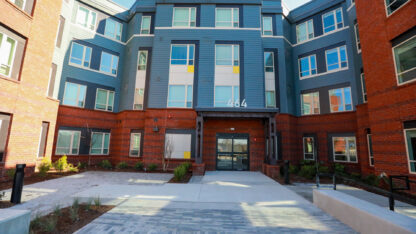Proposed Annexations Could Connect Emory To Rail

MARTA officials have long wanted to build the Clifton Corridor light-rail line near Emory University but can’t while the area remains outside the city.
Alison Guillory / WABE
The proposed annexations of Emory University, Children’s Healthcare of Atlanta’s Egleston Hospital and the U.S. Centers for Disease Control and Prevention into Atlanta wouldn’t yield the city a tax bonanza. But according to this week’s Atlanta Business Chronicle, Atlanta would be enriched substantially by the economic development that would accompany a light-rail line along the Clifton Corridor, which MARTA officials have long wanted to build but can’t while the area remains outside the city.
Emory, CHOA-Egleston and the CDC submitted separate petitions June 27 to join Atlanta, kicking off a review process expected to lead to a vote by Atlanta City Council this fall.
The Clifton Corridor line was one of the projects MARTA promoted last year when the General Assembly was debating legislation to let Fulton and DeKalb counties and the city of Atlanta ask voters to raise the 1-cent MARTA sales tax by a half penny.
However, elected leaders from North Fulton objected to the bill. When they dug in their heels, supporters were forced to limit the transit component of the measure to projects inside the city limits of Atlanta. As a result, the sales-tax referendum Atlanta voters approved overwhelmingly last November will pay only for transit improvements inside the city.
That restriction would become moot if the Clifton Corridor is brought into Atlanta through the proposed annexations. And the rail line would be expected to bring with it a development boon.
Data commercial real estate services company Cushman & Wakefield released last year suggests apartment projects closest to existing MARTA stations are showing stronger rent growth and lower vacancies than the overall market in both intown and suburban areas. The average rent premium of apartment units near the transit stations is 9.8 percent.
Dave Williams covers government for Atlanta Business Chronicle.








